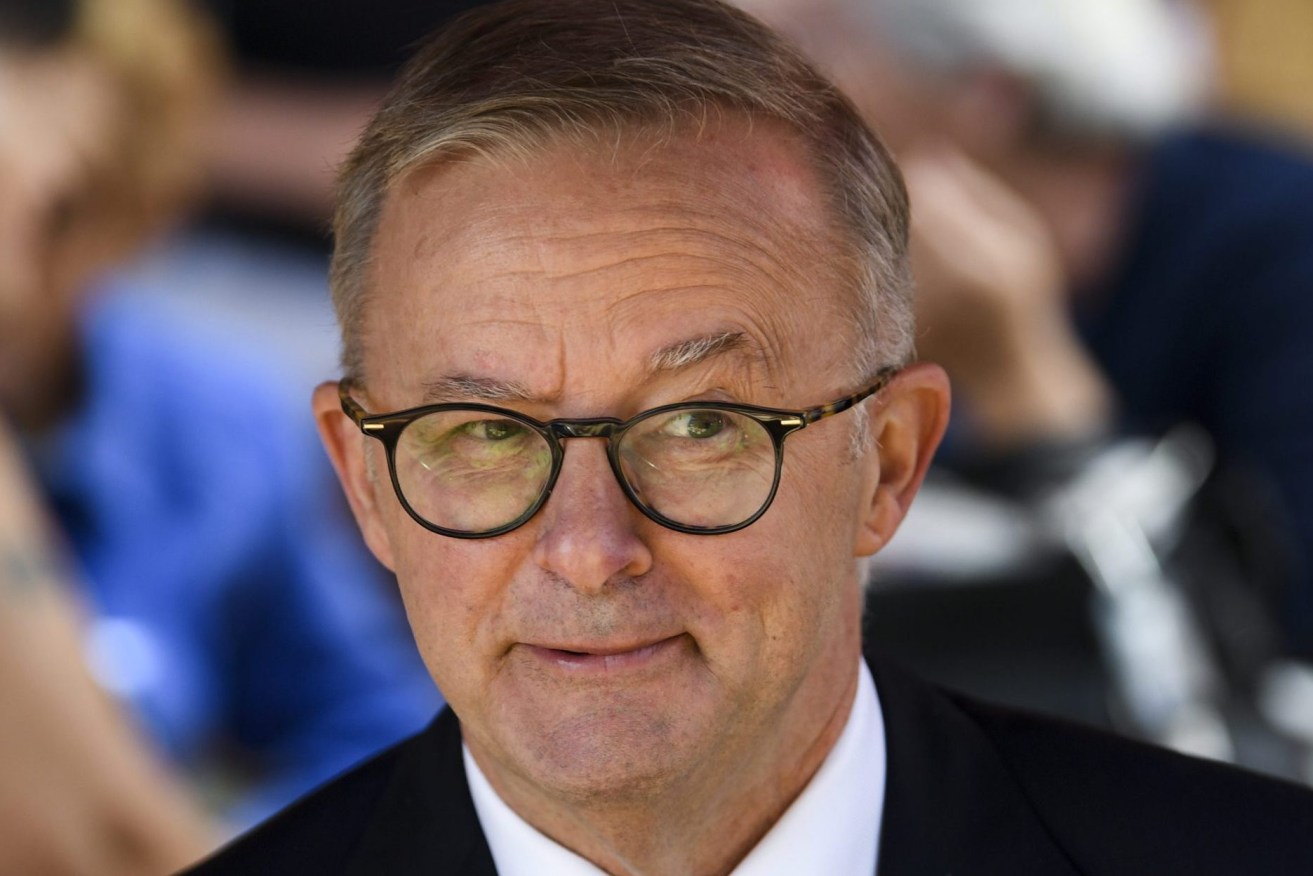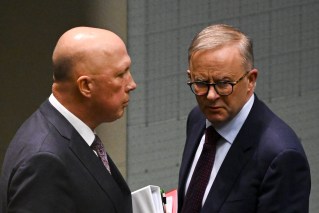In case you are wondering about the bloke in the trendy glasses, that’s the same Albo
Those who know Anthony Albanese best are struggling to recognise him as the new occupant of The Lodge. Former Albanese senior staffer Matthew Franklin explains.

(AAP Image/Lukas Coch)
Australians might today be wondering what happened to Anthony Albanese, the left-wing firebrand who wanted to fight Tories and change Australia.
Labor’s first budget, delivered on Tuesday night, is a modest plan framed in difficult economic times.
It delivers Labor’s election promises, but avoids political risk. There was nothing from left field. No new taxes. No scrapping stage-three tax cuts.
But many people on the left wanted more. After all, didn’t this bloke grow up tough in social housing? Didn’t he once boast about how he liked to fight Tories? Doesn’t he want to change the nation?
The sobriety of budget 2022 reveals much about the political evolution of Anthony Albanese. It locks in his transformation from an activist to a political leader who wants to rule from the political centre.
Albanese’s guiding light is his ambition to lay the foundations for a long-term Labor government.
This term is all about restoring public faith in politics, delivering election promises, and dealing with the significant economic challenges of the post-Covid era.
He will leave broader big-ticket reform to the future.
This approach might frustrate some hard-liners, but it should come as no surprise.
For years, as his opponents have long labelled him a dangerous leftist, the Prime Minister has been quietly formulating a model for moderate, collaborative national leadership.
Albanese does want to change the nation. But he is driven by a deep conviction that for Labor governments to be true reformers, they must win multiple elections so they can establish the case for reform and retain office long enough to bed down their program.
He does not want to go down in Labor history as a radical reformer, but as the sensible leader who returned Labor to power and established a base for a long spell in office.
This approach was formulated with an eye to recent Labor history.
For example, Albanese, like most Labor people, reveres Gough Whitlam. As a boy living in social housing in Sydney, Whitlam reforms like free university and universal health care literally changed his life.
But the Whitlam government lasted only three years. When Malcolm Fraser became prime minister, he gutted Medibank. Australians had to wait eight years for its reintroduction by Bob Hawke through the current Medicare system.
Albanese is still fuming.
In a speech reflecting on the Whitlam era in Shellharbour in 2018, Albanese told party branch members: “If you are in the reform business, you need to occupy office for several terms so the roots of your policy can grow deep and withstand the storms of conservative government.”
As much as Albanese loves Whitlam, his real political hero is Hawke, a consensus builder who won four elections in a row, guaranteeing that his economic, health and education reforms were set in concrete.
Hawke understood the long game as well as the need to build public consensus for reform, rather than imposing change.
Bill Shorten’s defeat in the 2016 election also shaped current Labor thinking. Shorten had an ambitious policy agenda, including controversial changes to tax arrangements on franking credits and negative gearing.
Whatever the merit of the policies, they provided perfect ammunition for devastating scare campaigns that helped Scott Morrison and the Liberals win.
Albanese won’t make the same mistake.
That’s why he adopted a small target strategy in this year’s election campaign. Budget 2022 maintains this careful, disciplined approach.
Albanese’s political character was also shaped by his experience as a minister in the Rudd and Gillard Labor governments, which imploded amid internal disunity and leadership rivalry after only two terms in office.
As ministers in those governments, Albanese and his senior colleagues see themselves as having unfinished business. They won’t allow ill discipline to damage their opportunity for redemption.
Albanese’s path is clearly set.
With Bob Hawke as his model, he stresses collaboration and consensus, making a show of talking to business, unions and community groups before policy decisions.
He avoids gratuitous political partisanship in line with his view that Australians have “conflict fatigue’’ and want outcomes, not arguments.
He has even resisted the temptation to dominate the 24-hour media cycle in an important atmospheric shift from the boots-and-all political approach of the Morrison government.
However, it would be a mistake to conclude that Albanese has no appetite for reform.
He simply believes that history shows successful Labor governments take their time.
As he said in the Whitlam Oration: “We must be brave enough to offer visionary leadership — but smart enough to know that effective reform requires that we bring the people with us.’’
Perhaps Albanese’s biggest challenge is controlling the expectations of Labor MPs, unions and interest groups, who are counting on Labor to make a difference to working Australians.
Some favour a tax-and-spend model, arguing that when you hold power you should exercise it.
But that won’t happen.
The economic pressure of our times will allow Albanese to keep these pressures at bay.
Beyond that, it is simple — Albanese has his eye on the long game.
Matthew Franklin is a political journalist and former media adviser to Anthony Albanese and Kevin Rudd












